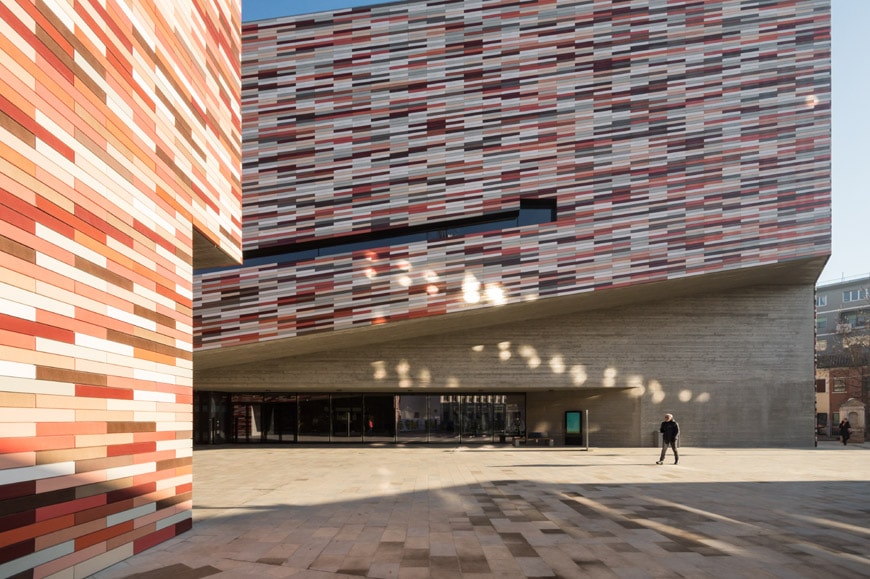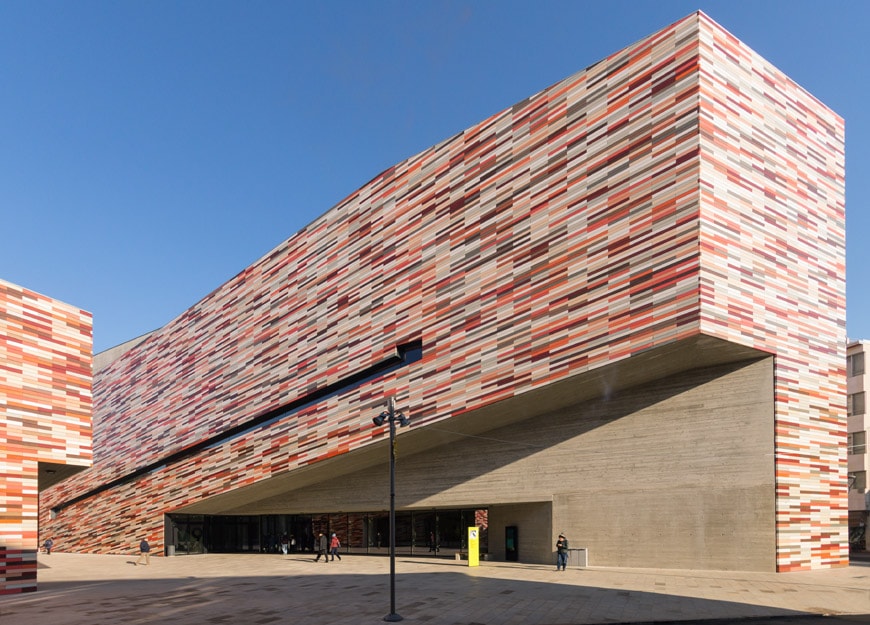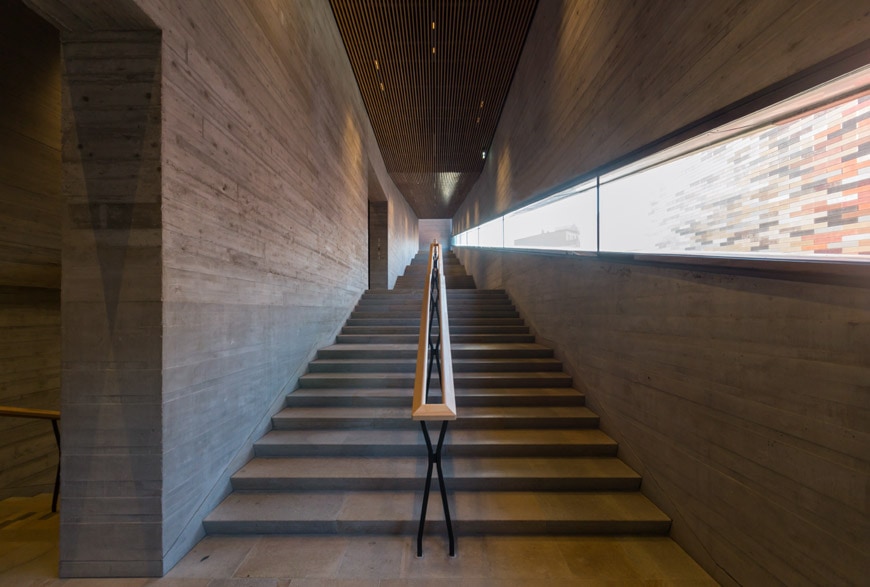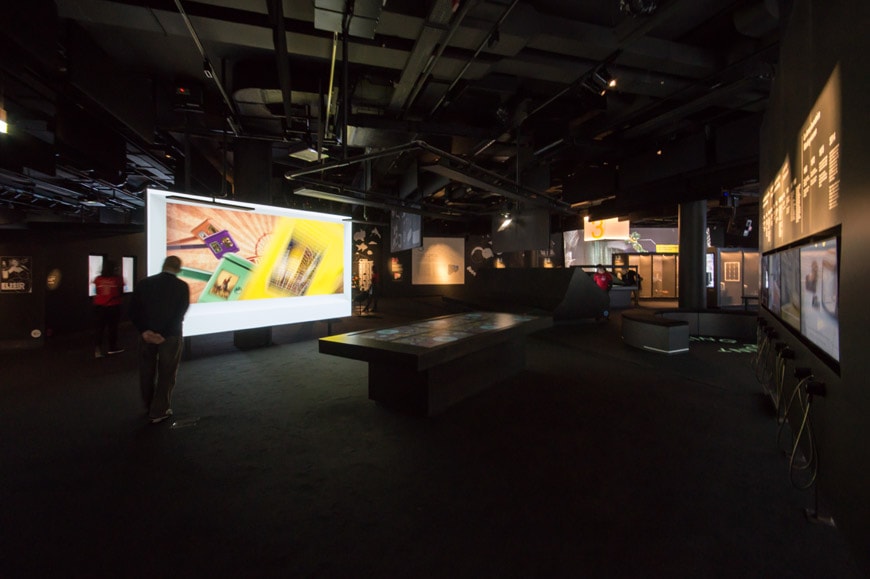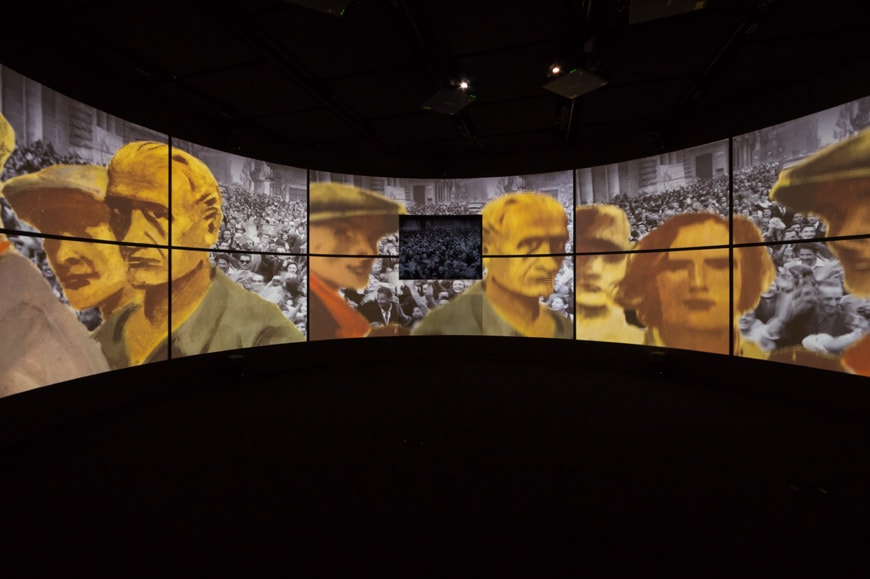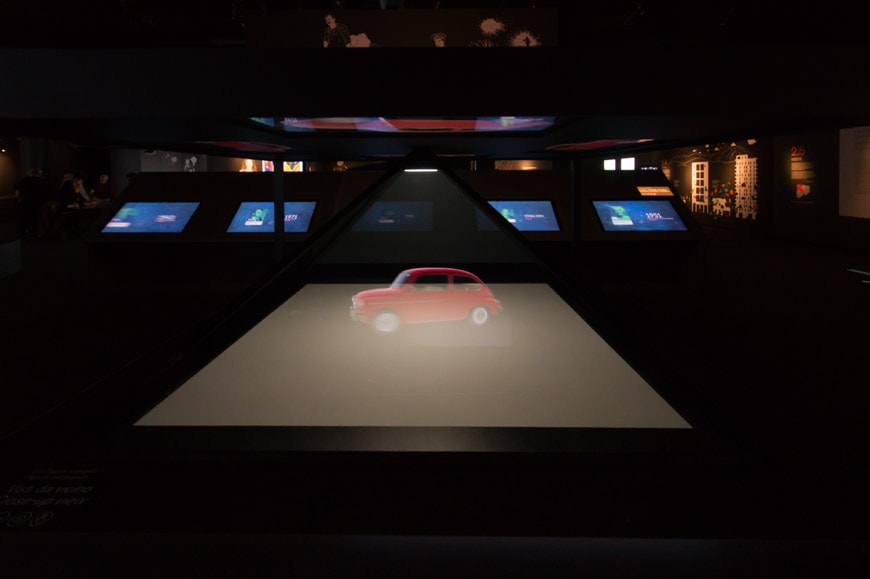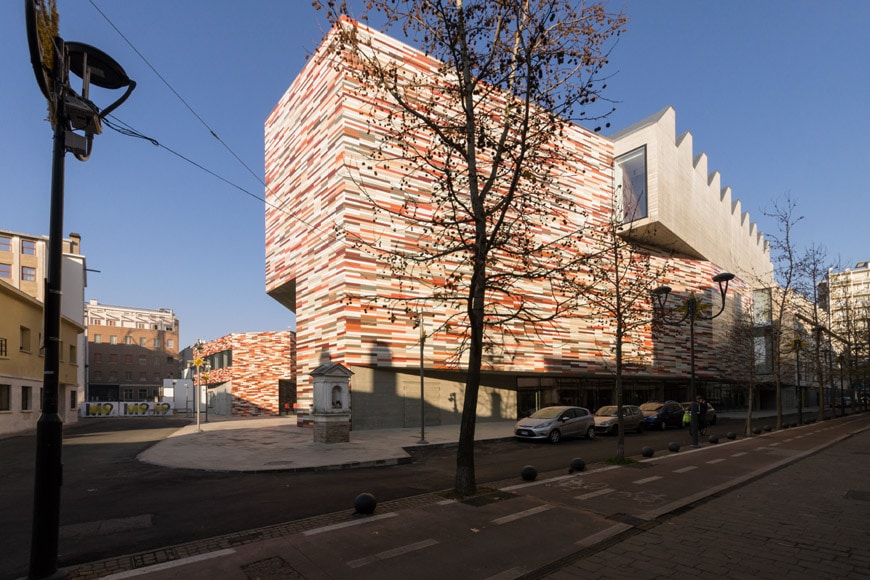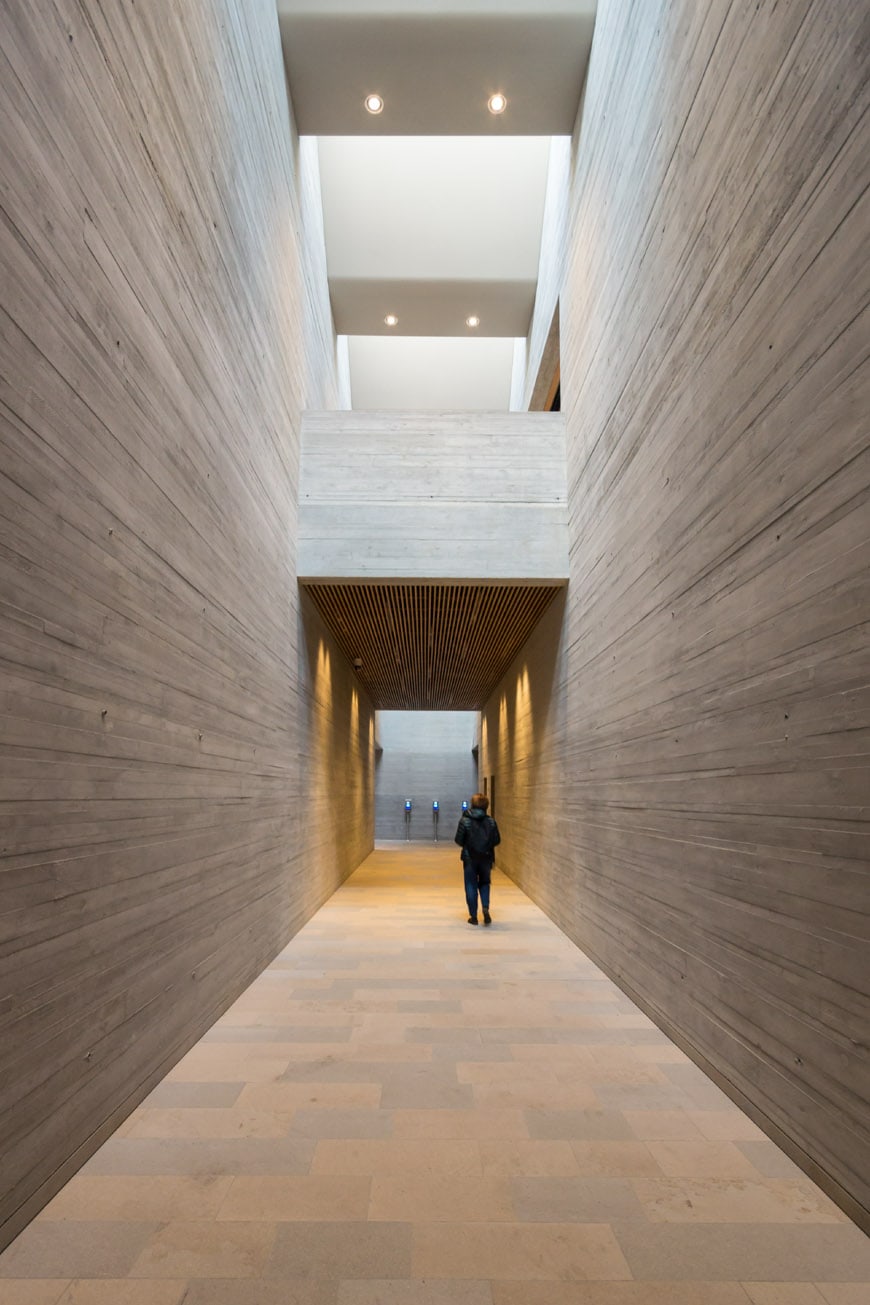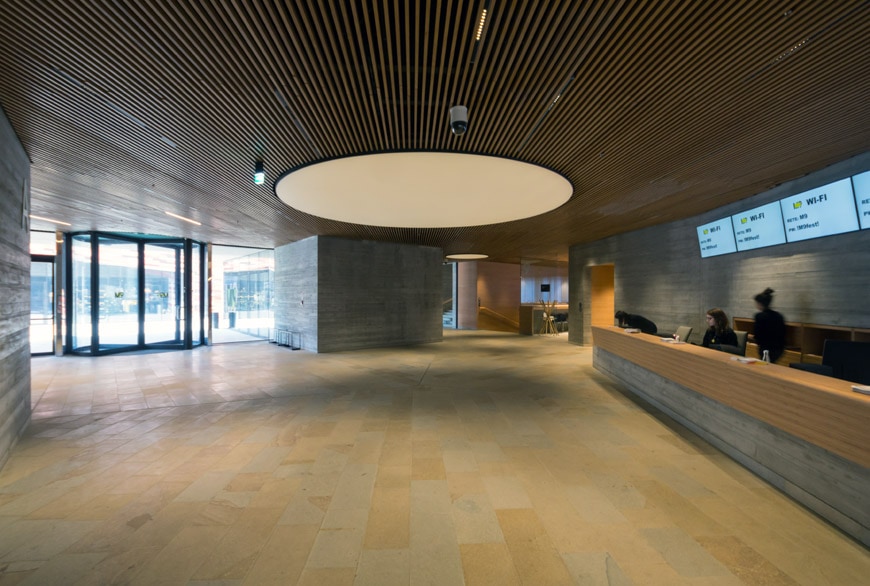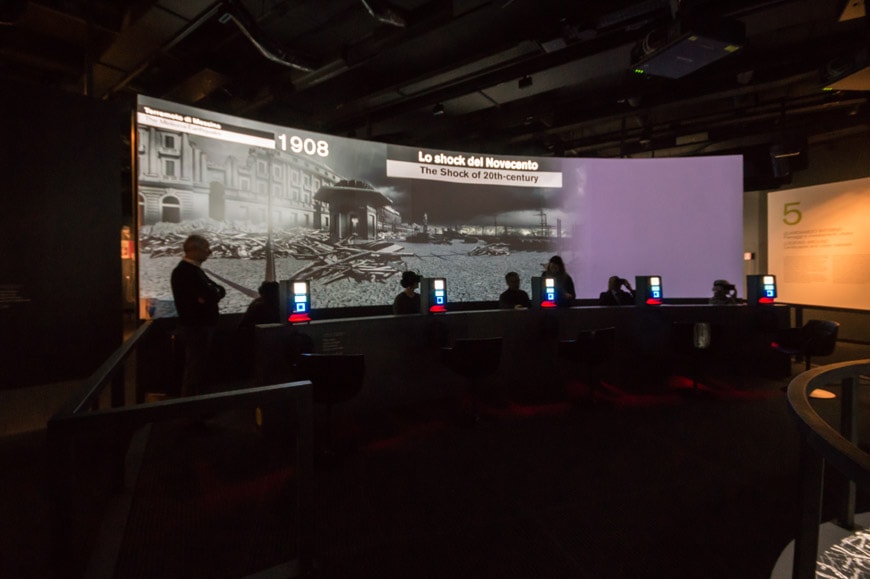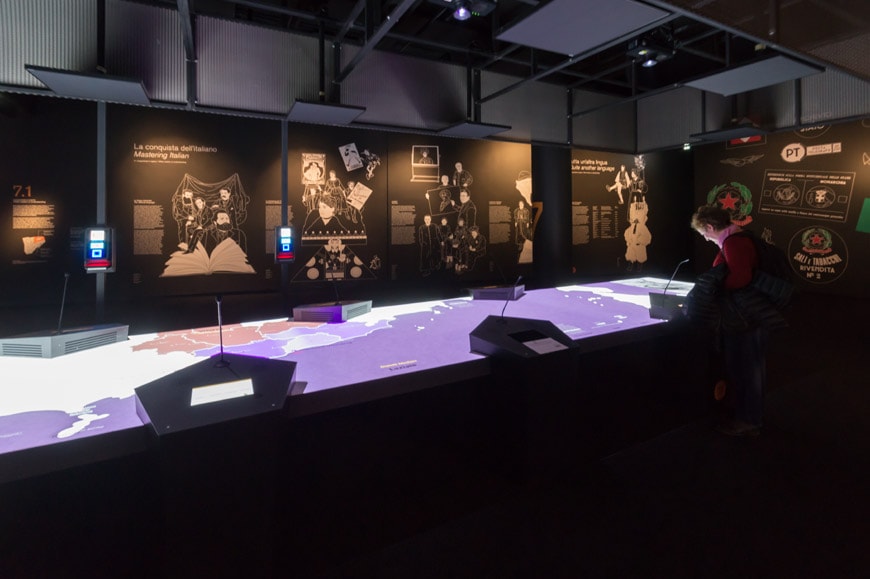Sauerbruch Hutton’s M9 Museum in Venice
https://www.m9museum.it/en/
M9 – Museo del ‘900 is a museum in Venice Mestre dedicated to Italy’s 20th-century history.
The museum’s building
Opened in December 2018 as the centerpiece of a larger urban renovation in central Mestre, the M9 building was designed by Berlin-based architectural firm Sauerbruch Hutton, which won the international architectural competition to design the museum in 2010.
The M9 museum in Venice Mestre, west facade; photo © Riccardo Bianchini / Inexhibit
With a total gross floor area of 10,000 square meters / 108,000 square feet, M9 consists of two buildings; the larger one has a triangular plan and contains galleries, an auditorium, and various visitor facilities while the smaller one accommodates the museum’s offices.
Both buildings are clad externally with ceramic tiles of different colors, a distinguishing trait of many designs by Sauerbruch Hutton.
In the main building, a large double stairway, which gives access to the exhibition galleries, is enclosed in a long “wedge-shaped” volume cantilevering out from the west facade of the museum.
The galleries on three upper floors are large “black boxes”, almost column-free and windowless, painted in dark colors, while the spaces for the public on the ground floor are bright and their surfaces are mostly made of bare concrete and wood, two materials also widely used throughout the rest of the building.
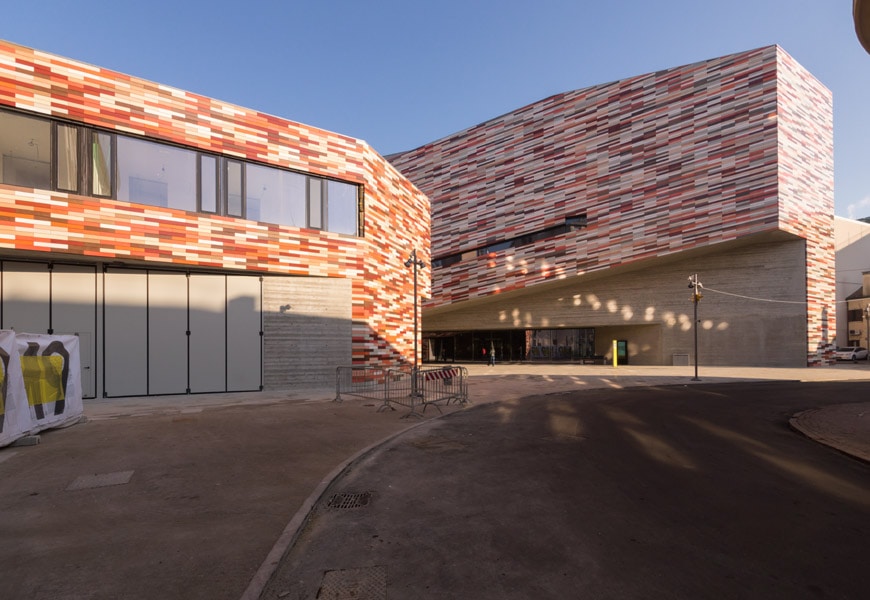
Exterior and interior views of the M9 museum in Venice Mestre; photos © Riccardo Bianchini / Inexhibit
Permanent exhibition
Occupying over 2,600 square meters / 28,000 square feet on two levels, the permanent exhibition of M9 presents the history of the 20th century in Italy in eight thematic sections.
Apart from a small number of physical objects, the exhibition is almost completely “immaterial” and consists of videos, graphics, multimedia installations, and interactive & VR immersive experiences.
If, on one hand, this approach seems appropriate for an education-oriented museum, on the other hand, it results in a slightly confusing exhibition because of the high, probably excessive, variety of subjects and sub-themes presented ranging from sociopolitical events, environmental transformations, and everyday lifestyles to the evolution of media and means of communication, industrialization, and technological innovation.
The playful approach and the communication paradigms adopted reveal that the museum is chiefly aimed at children, teens, families, and schools, although adults may find it rather interesting too.
In general, the decision to prefer multimedia and “immaterial” communication to that traditionally based on physical objects is quite audacious. Only time will tell whether such an approach will be effective in conveying, especially to young people, the complex and controversial history of 20th-century Italy or not.
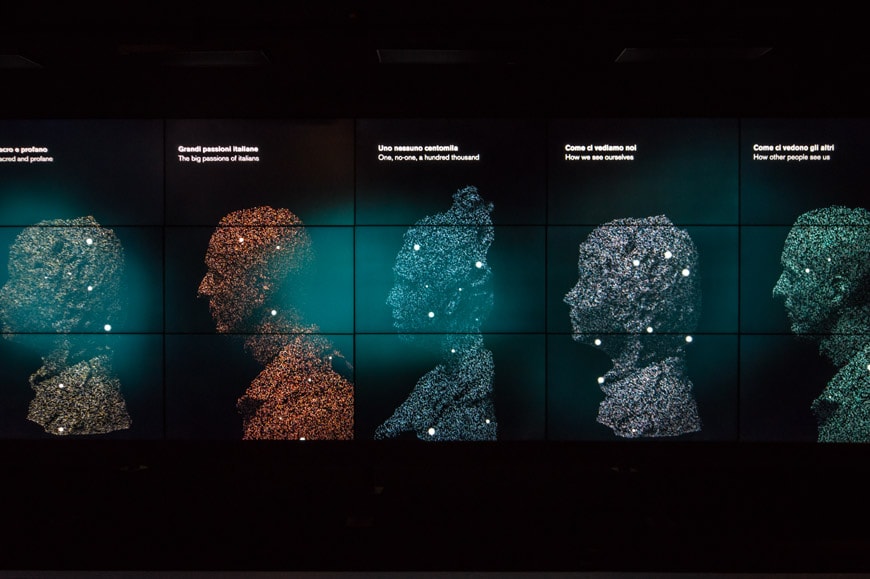
The permanent exhibition of the M9 museum, consisting of over 60 multimedia and interactive installations; photos © Riccardo Bianchini / Inexhibit
Program of events and activities
The program of M9 includes temporary exhibitions, film screenings, concerts, conferences, educational activities, and special events.
The museum, fully accessible to physically impaired people, also contains a 200-seat cinema-auditorium, a media library, a cafe-restaurant, and a bookshop.
Pictures
M9, exterior view from the south-east

Detail of the polychrome ceramic tile cladding of the M9 buildings
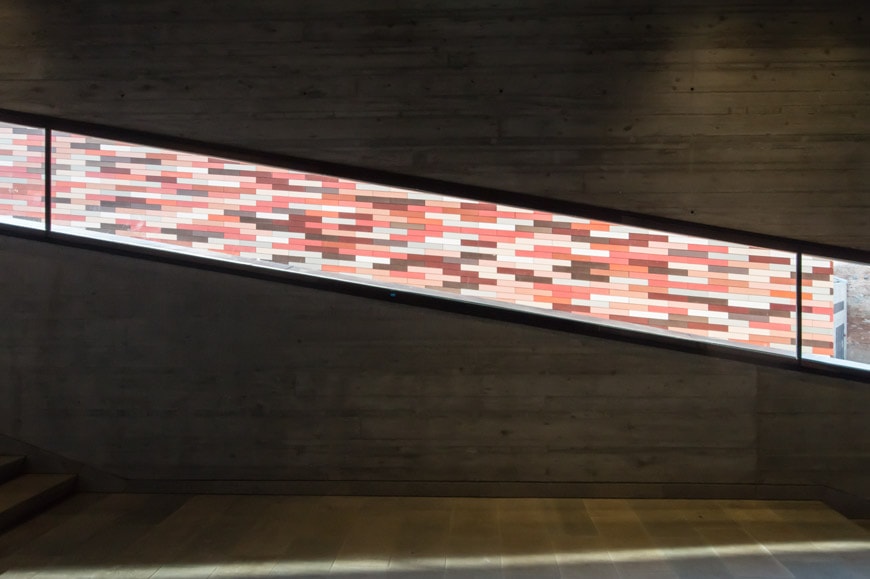
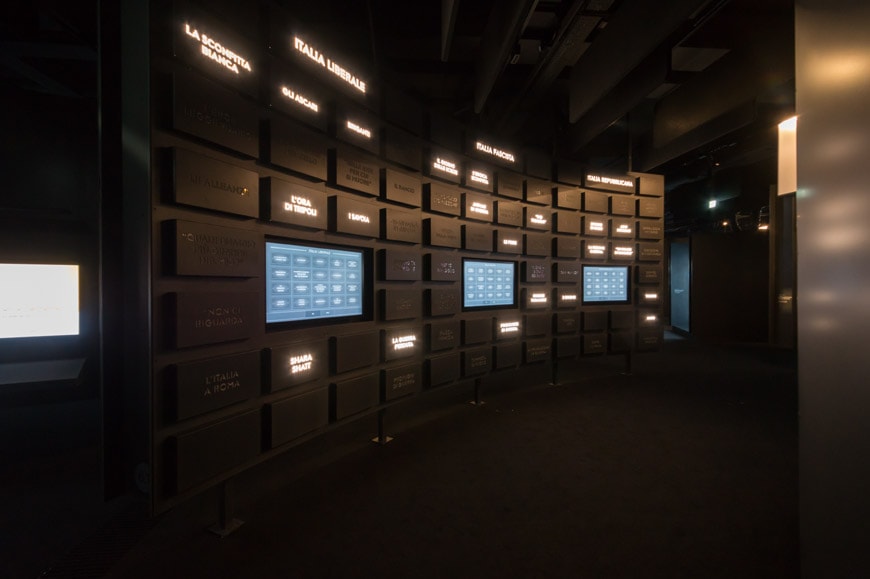
Exterior and interior views of the M9 museum; photos © Riccardo Bianchini / Inexhibit
Cover image, the main entrance of the M9 museum in Venice Mestre designed by Sauerbruch Hutton Architects; photo © Riccardo Bianchini / Inexhibit
copyright Inexhibit 2025 - ISSN: 2283-5474

